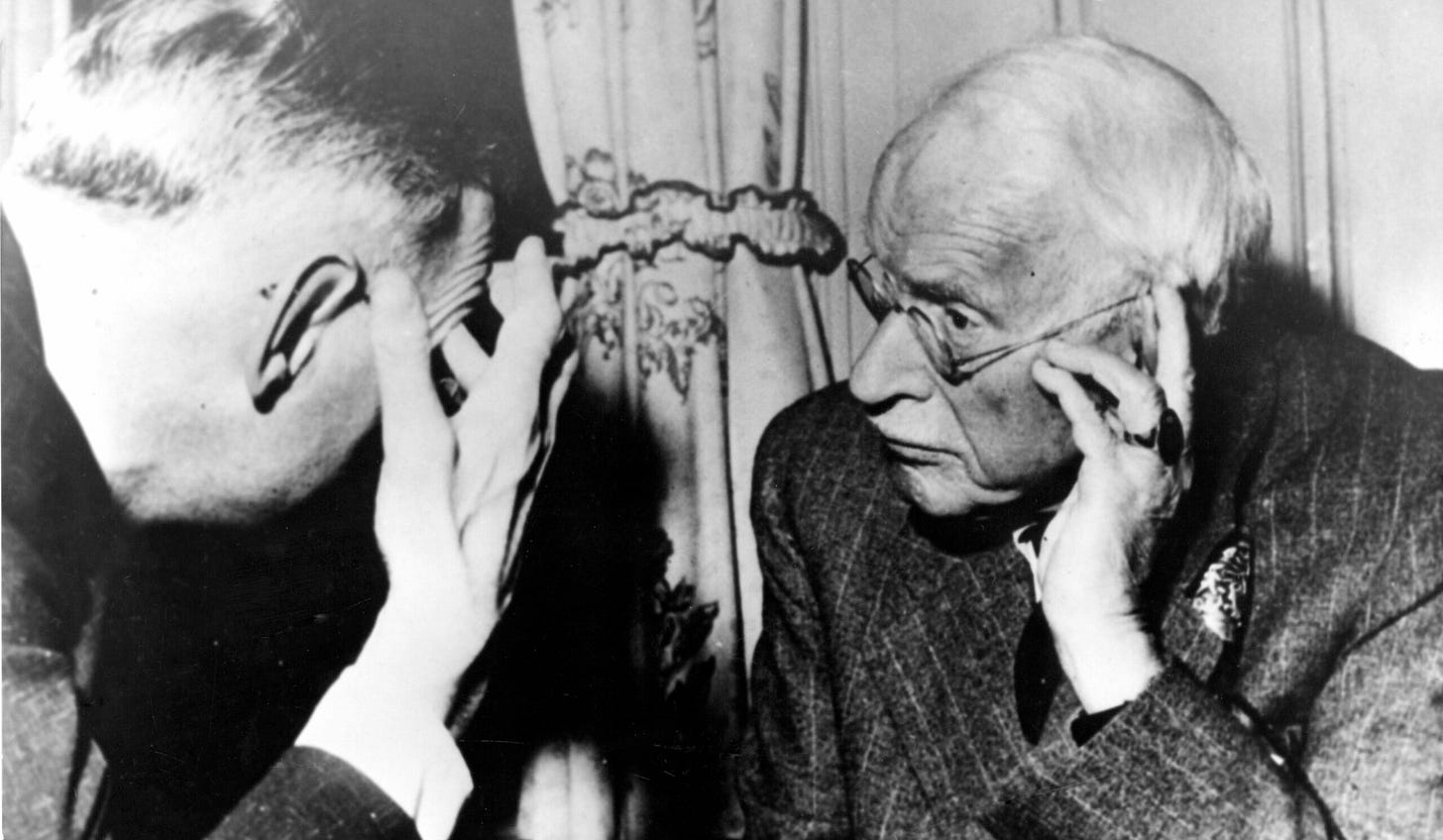Your Dreams Are Warning You
Carl Jung: A Guide to Unconscious Signals
Have you ever woken up from a vivid dream, heart racing, unsure of what you've just experienced? Did it feel like a cryptic message, a riddle you couldn't quite solve? What if I told you those late-night journeys weren't just random images, but rather, urgent warnings and insightful guides, whispered from the deepest recesses of your mind?
This is the world Carl Jung illuminated – a realm where dreams aren’t just about what you *want*, but about what you *need* to know. This video, a deep dive into the mind of the Swiss psychiatrist, will unlock the hidden language of your unconscious. See for yourself:
The Unconscious Calling: Personal vs. Collective
Sigmund Freud, Jung's contemporary, famously saw dreams as the playground of repressed desires. Jung, however, took a different path. He believed the unconscious wasn't just a repository for our personal experiences but a vast, interconnected ocean of psychic energy. Think of it this way: you have your *personal unconscious*, filled with individual memories, emotions, and experiences you've forgotten or repressed. But, beyond that, is something far grander—the *collective unconscious*.
What does the collective unconscious contain? According to Jung, it's filled with inherited psychic blueprints, the shared psychological patterns of all humanity. This is where we find the raw materials of our dreams: *archetypes*.
Decoding the Archetypes: Universal Symbols in Your Sleep
Archetypes are universal, primordial patterns or symbols that reside within the collective unconscious. They are the building blocks of our dreams, and they manifest in various forms, communicating through a rich tapestry of symbols. Think of it as a universal language, understood across cultures and throughout history. The Hero, the Shadow, the Wise Old Man, the Great Mother – these figures are not simply characters in a dream; they are symbolic representations of fundamental aspects of the human psyche.
Let's explore a few key archetypes:
The Shadow: Often representing the repressed parts of ourselves, the qualities we dislike or deny.
The Anima/Animus: The inner feminine (Anima) in men and the inner masculine (Animus) in women, representing the unconscious aspects of the opposite gender.
The Self: The archetype of wholeness, the ultimate goal of individuation, often represented by a circle, mandala, or a wise, guiding figure.
Recognizing these archetypes in your dreams is the first step in understanding their message. The specific symbols and narratives in your dreams provide clues to your personal psychological state, offering a diagnosis of sorts.
The Power of Compensation: Dreams as Balancers
One of Jung’s most profound concepts is *compensation*. He believed that dreams act as a balancing force, correcting the imbalances in our conscious lives. If you're overly focused on one aspect of your personality, your dreams might introduce the neglected parts. Are you a workaholic, ignoring your emotions? Your dreams might show you a crying child or a loving pet. Are you overly confident and arrogant? Your dreams might present you with a humbling experience.
"The dream is a little hidden door in the innermost and most secret recesses of the soul, opening into that cosmic night which was long before there was any ego-consciousness, and which will be there for billions of years after it is gone." - Carl Jung
Dreams, in this framework, are not just random experiences, but *critical feedback*. They are constantly trying to steer you towards greater wholeness, warning you of dangers like an inflated ego or a neglected shadow.
The Journey of Individuation: Finding Your True Self
So, why does any of this matter? Because understanding your dreams, according to Jung, is a pathway to *individuation* – the process of becoming a whole, integrated individual. It's a journey of self-discovery, of integrating your conscious and unconscious selves.
Here’s a simple guide to understanding this transformative process:
Pay Attention: Start a dream journal. Write down your dreams immediately upon waking, capturing as much detail as possible.
Identify Archetypes: Look for recurring symbols, figures, and themes. What archetypes are appearing in your dreams?
Analyze the Context: Consider your current life circumstances. What are you struggling with? What areas of your personality are you neglecting?
Seek Professional Guidance: Consider working with a Jungian analyst to help you interpret your dreams and navigate the complexities of your unconscious.
This is not about simply memorizing a dream dictionary; it's about learning to listen to the wisdom of your own inner world. It’s about developing a dialogue with your unconscious and integrating its messages into your daily life.
Unlock deeper insights with a 10% discount on the annual plan.
Support thoughtful analysis and join a growing community of readers committed to understanding the world through philosophy and reason.
Embracing the Warnings: A Final Reflection
Carl Jung’s work gives us a powerful framework for understanding the language of our dreams. Your dreams are not just random images; they are complex communications from the deepest parts of your psyche, using universal symbols and archetypes to deliver urgent messages. They serve as a crucial tool for personal growth, offering warnings and guidance to help you become a more whole and authentic individual.
The warnings are there, the guidance is present – are you ready to listen? The journey of individuation is not easy, but the rewards – self-awareness, integration, and a deeper connection to your own true self – are immeasurable. What hidden messages await discovery in your dreams tonight?



